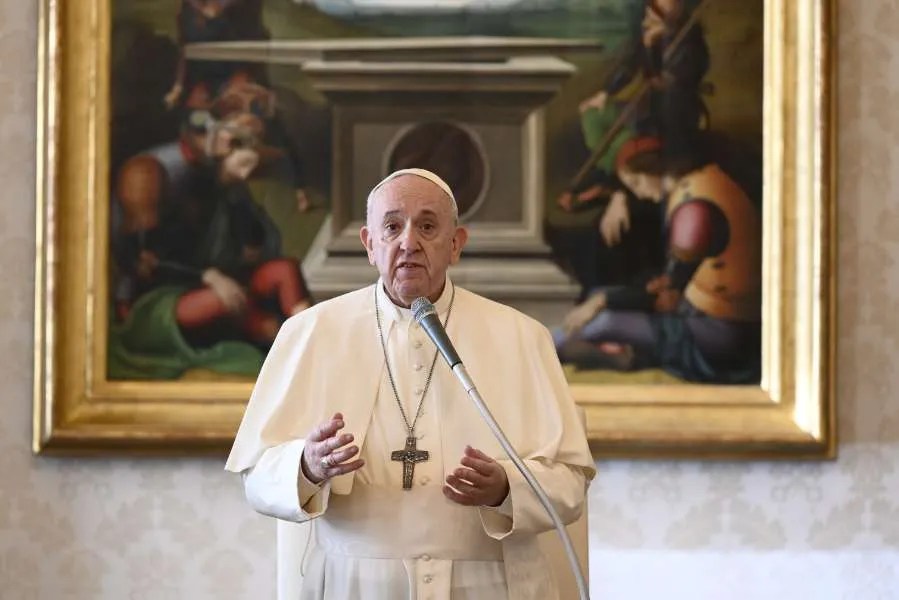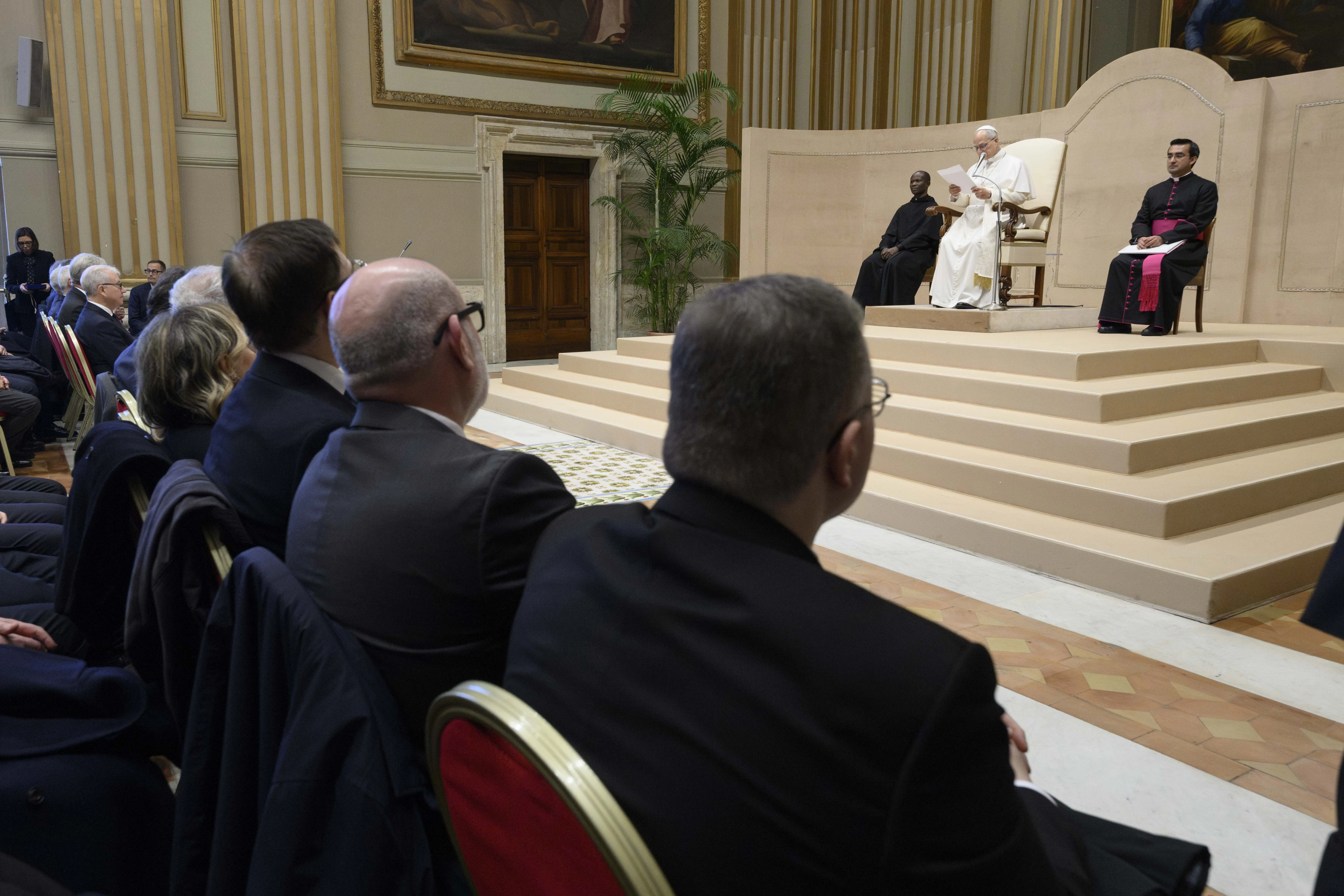“The image of the early Community of Jerusalem is the point of reference for every other Christian experience. Luke writes in the Book of Acts: ‘And they devoted themselves to the apostles’ teaching and fellowship, to the breaking of bread and the prayers’ (2:42). The community persevered in prayer,” he explained.
“We find here four essential characteristics of ecclesial life: listening to the apostles’ teaching, first; second, the safeguarding of mutual communion; third, the breaking of the bread; and fourth, prayer.”
He continued: “They remind us that the Church’s existence has meaning if it remains firmly united to Christ, that is, in community, in His Word, in the Eucharist and in prayer -- the way we unite ourselves to Christ.”
“Preaching and catechesis bear witness to the words and actions of the Teacher; the constant quest for fraternal communion shields us from selfishness and particularisms; the breaking of the bread fulfils the sacrament of Jesus’ presence among us. He will never be absent -- particularly in the Eucharist, He is there. He lives and walks with us. And lastly, prayer, which is the space of dialogue with the Father, through Christ in the Holy Spirit.”
The pope added: “Everything in the Church that grows outside of these ‘coordinates’ lacks a foundation. To discern a situation, we need to ask ourselves about these four coordinates: how in this situation these four coordinates are present -– the preaching, the constant search for fraternal communion, charity, the breaking of the bread (that is, the Eucharistic life), and prayer.”
Speaking off the cuff, the pope said it pained him when he encountered communities that neglected the four authentic hallmarks of the Church.
“At times, I feel tremendous sadness when I see a community that has good will, but takes the wrong road because it thinks that the Church is built up in meetings, as if it were a political party,” he said.
“‘But, the majority, the minority, what do they think about this, that and the other… And this is like a synod, the synodal path that we must take…’ I ask myself: ‘But where is the Holy Spirit there? Where is prayer? Where is communitarian love? Where is the Eucharist?’”
“Without these four coordinates, the Church becomes a human society, a political party -- majority, minority -- changes are made as if it were a company, according to majority or minority… But the Holy Spirit is not there. And the presence of the Holy Spirit is precisely guaranteed by these four coordinates.”
The four coordinates can be used to judge whether a situation is truly ecclesial, he said. If any of the coordinates is lacking, then the Holy Spirit will also be absent.







